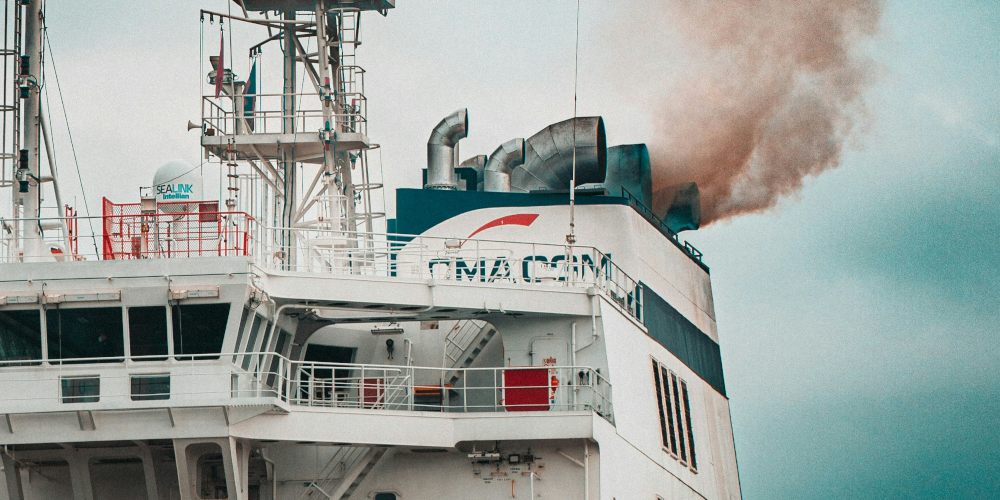Browse our services
Explore how Brookes Bell can help you
Find an expert
Meet our team, find and expert and connect
Contact us
Get in touch, we're here to help

Efforts to finalise a global levy on shipping's greenhouse gas emissions encountered significant hurdles at the recent IMO GHG meeting, though promising agreements emerged.
The latest International Maritime Organisation (IMO) Greenhouse Gas (GHG) working group meeting, held between the 17th to 21st February 2025, concluded without a definitive agreement on a universal levy to address the shipping industry's greenhouse gas emissions.
Despite this setback, the meeting, known formally as ISWG-GHG 18, showed considerable support among member states for a contribution system aimed at reducing the sector’s environmental footprint.
Approximately three-quarters of the IMO States now back the GHG contribution system proposed by a coalition of governments and the International Chamber of Shipping (ICS), collectively referred to as the “50-plus group.”
However, this broad support has yet to translate into consensus. A significant minority, including China and Brazil, have expressed reservations, emphasising the need for a pragmatic approach to bridge the remaining divides.
The proposal at the centre of the discussions, co-sponsored by 51 entities - including governments, key shipping nations, the European Commission, and ICS - advocates for a system where ships would contribute annually based on their greenhouse gas emissions.
This levy would fund a newly proposed “IMO GHG Strategy Implementation Fund” to support initiatives that mitigate shipping emissions.
One notable outcome was a general agreement among member states to establish this IMO Fund. The fund, which could potentially generate billions of US dollars annually, would reward innovative ships and “first movers” that adopt zero- and near-zero (ZNZ) emission fuels such as green methanol, biomethane, and sustainable biofuels.
However, disagreement remained over the specifics of a proposed GHG intensity fuel standard, which seeks to further regulate emissions.
In response, ICS has put forward an alternative proposal that centres on GHG surcharge fees for ships unable to comply due to limited fuel availability. This simpler approach is still under consideration as discussions advance.
Secretary general of the ICS, Guy Platten, highlighted the urgency of achieving progress, particularly with the critical IMO Marine Environment Protection Committee (MEPC 83) scheduled for April.
“While ICS is broadly satisfied with the progress made on a radical new package of global GHG reduction regulations, including a GHG emissions pricing mechanism, much work urgently remains to be done. But despite divergence on many issues, it is encouraging that negotiations continue in a positive and cooperative spirit,” Platten commented.
He further stressed the need for practical solutions to resolve key differences, particularly in incentivising the use of ZNZ fuels.
“To ensure progress, ICS will continue to put forward pragmatic and constructive proposals to bridge differences, particularly on the crucial issue of economic incentives for the use of ZNZ fuels,” Platen added.
“Achieving consensus is crucial for delivering the goals of the revised GHG Reduction Strategy, which were unanimously agreed by all governments in 2023”.
Still, the IMO inches closer to its goal of delivering a cohesive and impactful emissions reduction strategy. The MEPC 83 meeting will be a critical moment for turning these discussions into actionable agreements that propel the industry toward a greener future.
The shipping industry depends on quality fuels to traverse the world’s oceans. Unfortunately, bunker fuels are frequently a source of quality issues, affecting both the fuel treatment plant on vessels and also resulting in engine-related damage or worse.
At Brookes Bell, our team of experienced, dedicated fuel and fuel cargo experts; many of whom have 30 years’ or more experience, will assist you with bunker issues, fuel cargo quality, a forensic engineering investigation on board a vessel or loading issues.
For more maritime industry insights, news and information, read the Brookes Bell News and Knowledge Hub…
Singapore Reports Sales of 1m Tonnes of Alternative Fuels in 2024 | AkzoNobel Protects Ultra Deep Sea Drilling Vessel | Pacific Basin Chooses Graphene-Based Propeller Coating to Boost Efficiency